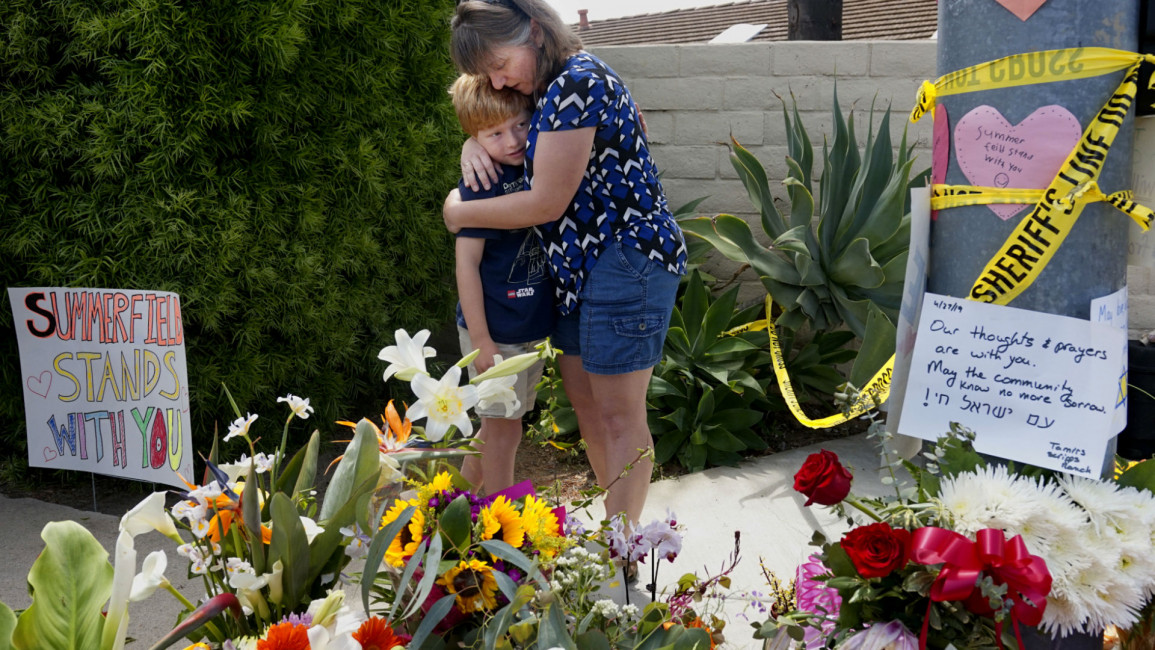Anti-Semitic attacks in the US 'doubled in 2018'
Violent attacks against the Jewish community in the United States doubled last year, while overall abuses, including vandalism and harassment, remained near record-high levels with the increasing popularity in white supremacy, the Anti-Defamation League reported Tuesday.
Jewish civil rights group released its annual census of anti-Semitic incidents three days after a gunman opened fire at a Southern California synagogue, killing a woman and wounding a rabbi and two others.
The New York-based group counted 1,879 anti-Semitic incidents - either harassment, vandalism or physical assault - in 2018. That is a 5 percent decrease from the 1,986 incidents reported in 2017, but the third-highest total since ADL began tracking the data in the 1970s. The 2017 number marked a 57 percent increase over 2016 and was the highest tally ADL had counted in more than two decades.
ADL counted 39 cases of physical assaults involving 59 victims in 2018, up from 19 assaults and 21 victims in 2017. The 2018 tally includes the 11 people who were killed and two congregants wounded when a gunman opened fire at the Tree of Life Synagogue in Pittsburgh in October. It was the deadliest attack on Jews in the nation's history.
"It's clear we must remain vigilant in working to counter the threat of violent anti-Semitism and denounce it in all forms, wherever the source and regardless of the political affiliation of its proponents," said Jonathan Greenblatt, ADL's CEO and national director.
In 2018, ADL counted 1,066 cases of harassment, defined as a situation in which a Jewish person or group of people
|
||
"We've worked hard to push back against anti-Semitism, and succeeded in improving hate crime laws, and yet we continue to experience an alarmingly high number of anti-Semitic acts," Greenblatt said.
ADL's report says "known extremist groups or individuals inspired by extremist ideology" were responsible for 249 anti-Semitic incidents in 2018, accounting for 13 percent of the total.
"This is the highest level of anti-Semitic incidents with known connections to extremists or extremist groups since 2004, when at least 128 incidents were the result of leaflet distributions by white supremacist groups," the report adds.
The report says ADL does not include "anti-Israel incidents" in its audit of anti-Semitic incidents, unless "if they invoke or are accompanied by classic anti-Semitic stereotypes and tropes (such as Jews/Zionists control the government), if they target Jewish religious or cultural institutions or if they are expressed by groups or individuals who consistently express anti-Semitic ideas".
Around 140 anti-Semitic incidents fell under this category, according to the report.
"ADL is careful to not conflate general criticism of Israel or anti-Israel activism with anti-Semitism. However, Israel-related harassment of groups or individuals may be included when the harassment incorporates established anti-Jewish references, accusations and/or conspiracy theories," the report adds.



